Article by David Rosales
Pink Floyd rightly reject the tag of progressive rock. Their compositional development falls light years short of what the best bands of that movement were doing with much better taste than Floyd’s false humble presumption. Pink Floyd’s most developed and experimental ambient moments merely point in the direction of the road that their more inspired and thoughtful contemporaries were traveling on. Klaus Schulze’s ambient work in Tangerine Dream is a true testament to experimental, electronic, and sampled music.
Floyd were pioneers at modern hipsterism in rock and metal as we know it today: a brain cancer that places weirdness and forced variety before artful coherence. Their undeserved praise is based on the simple fact that they are marketable to a wide audience. They wrote mediocre rock songs derived from the style of The Beatles: laughable in their ambient attempts and a headache when their ‘creativity’ ran too free. Pink Floyd’s only truly laudable moments are displayed in laid back, long-running rock songs that support narrative on melody lines, include justified interludes. These works approach the story-telling function that reigns in and maximizes the long-lasting impact of their early experimentalism.
A brief rundown of each of Pink Floyd’s early albums is given below in the interest of separating the little good from the large amounts of face-palming, pseudo-progressive posturing:
The Piper at the Gates of Dawn (1967)
The Piper at the Gates of Dawn is too much of a name for too pathetic an album. A careless, random attempt at making Beatles songs take unexpected, sharp turns. .These are not at all pioneering as they simply abuse the Beatles’ wackier tendencies, creating interest through disjunction. These are poorly written pop songs with arbitrary appendages and nonsensical sounds: postmodernism meets banal rock music. Noteworthy are weird passages that sometimes build up to cumulative sequences but these are sparse and lead nowhere.
A Saucerful of Secrets (1968)
Pink Floyd moves on from The Beatles, adopting their postmodernist style consisting of juxtapositions and sequences that might sound coherent if used in a movie soundtrack but that fall short and sound incomplete when presented as music alone. They get points for sounding weird but this work amounts to a childish joke: the kazoos, marimbas, and random found sounds are ridiculous. People tend to like any entertaining piece of garbage. Ghost is an analogous modern band.
More (1969)
Pink Floyd moves on to a bawdier expression of the so-called ‘folk’ rock n’ roll of Led Zeppelin with mediocre results. However, they also continue a refinement of the ambient-oriented light rock interludes. More is intensely nonsensical, free jazz-influenced postmodernist pap.
The songs tend to have unclear curves, directions, or points. These are either standard pop songs that fade away or jumbled messes of random ideas breaking down into incongruent parts. The more laid back and standard pop songs with only moderate introductions, extraneous noises are the most pleasant; they still retain a certain sense of order that doesn’t render them oustanding but intelligible. Their surface traits attain purpose and balance in a way that finally approaches beauty. The random and bunk interludes remain unbearable though. This is music for those who wish to pose as music lovers yet cannot focus on actual ideas and aural concepts that birth, raise, and live lives of their own.
Ummagumma (1969)
1969’s second release is a much more consciously structured concept album. Again, Pink Floyd bring forth something that is more akin to a weirdo-funny soundtrack that evokes the idiocy of Ghost minus Ghost’s complete lack of talent. The conceptual focus brings to the album a shadow of meaning that is completely lacking from any of their prior releases. We can appreciate their compositional boundaries when the non-interlude tracks crumble and lose coherence in the middle. Entropy at work. The rest of the tracks are simply silly and completely unpurposeful as the band strums away in extremely simple cyclic orderings that are never resolved; they just slide away with no heads or tales. This is music that brings nothing except a meta-feeling of strangeness and not-so-unique uniqueness to make the ego feel smarter for ‘liking’ it.
Atom Heart Mother (1970)
Here, Pink Floyd start to display the sound they will be known for at the time of their zenith. The music flows smoothly and the randomness of sampled sounds is attenuated as they thought more this time around. While everything before Atom Heart Mother is utterly worthless, this album approaches the more orderly works their contemporaries with stronger classical influences. Pink Floyd’s music remains singularly simple but exquisitely developed; the messy pretentiousness is boxed in and reserved for very specific moments. They remain unable to capitalize, creating promising initial ideas but driving them into swamps, becoming brackish in their underlying repetitiveness. The suite bears the weight of the album; the rest of the songs are inconsequential and unworthy of notice.
Meddle (1971)
A coming of age for Pink Floyd. The band is finally able to synthesize the concrete and promising aspects of their music, leaving behind much of the earlier nonsense which must have been explored in a completely intuitive manner. This album sees Pink Floyd apparently learning from their more cerebral peers (King Crimson had released several albums, Genesis was releasing their sophomore record, and Yes was arriving at their most meaningful expression alongside but completely separate from Pink Floyd) and trying to give continuity to the album itself: more tasteful attention is given to details inside songs which are somewhat melodically developed. The band is still mostly unable to conclude them, resorting to fades and cheap bale-outs. Most songs here are little better than augmented pop songs arranged with the whole album in mind, except for the longer stretches like the famous “Echoes”. This last track constitutes the net worth of this release; the rest may be dismissed without great loss.
Obscured by Clouds (1972)
Obscured by Clouds starts out with an intro that might have inspired the work of later Tangerine Dream, who made worthwhile music out of what was merely a random snippet of Pink Floyd. After an album that promised to elevate the band beyond its all-too-mediocre shyness, Obscured by Clouds relies on underdeveloped pop songs, random cool-sounding interludes that are just there as they can be, and the snapshots of what would later constitute the sound of their most prominent mainstream success.
The Dark Side of the Moon (1973)
1973’s classic is probably the one and only Pink Floyd album worth dedicating precious moments of existence to. The Dark Side of the Moon is the final definitive sound of the band par excellence. Their crippling compositional shortsightedness is still present but they have learned to just deal with it through years of perseverance. Through years of refinement the band has turned their prior randomness into sharply-focused moments that finally assemble together yet always remaining unrelated cars in a train of pure intuition rather than one single narrative. Delightfully put-together, each moment in the wide repertoire from this jack-of-all-trades band is brought forth slowly in a way that feels necessary and justified. It has the expectation, delivery and dissolution that any good album should envy.
The Dark Side of the Moon, Pink Floyd’s crowning achievement, deserves an honorable mention, perhaps a footnote under true masterpieces of popular art music that came out the following year through other talents. King Crimson’s Red, Genesis’s The Lamb Lies Down on Broadway, Gentle Giant’s The Power and the Glory are albums that appear smooth and simple but are truly only so in appearance. An unseen force is channeled through their inner alignment: complexity is made to seem easy and complex thought condenses into naturally-flowing music that effectively suscitates clear images in the mind’s eye.
Tags: 1970s, Ambient, ambient music, article, musical analysis, noise, pink floyd, prog rock, progressive rock, pseudo-prog, pseudo-progressive, random, rock, Sadistic, sadistic metal reviews
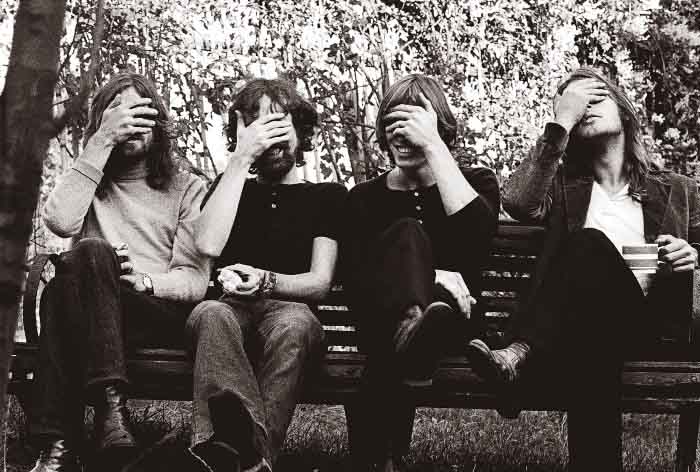
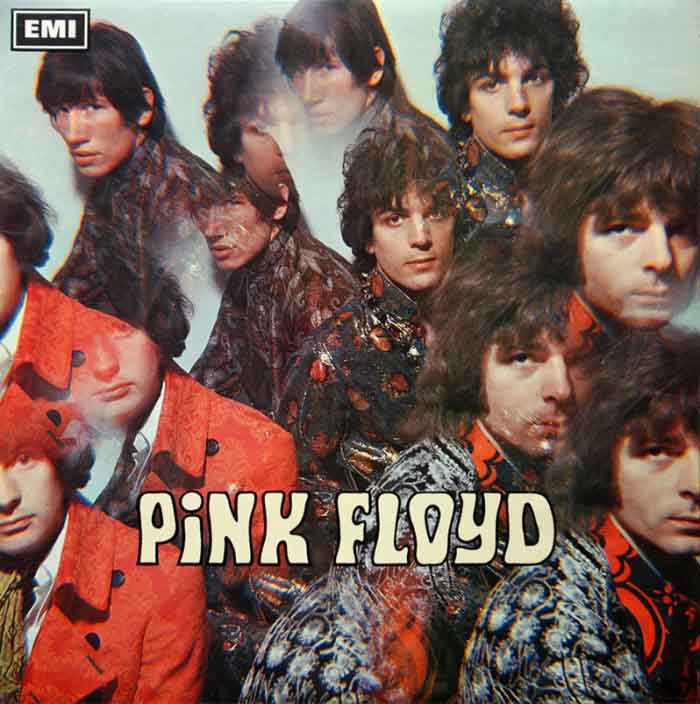
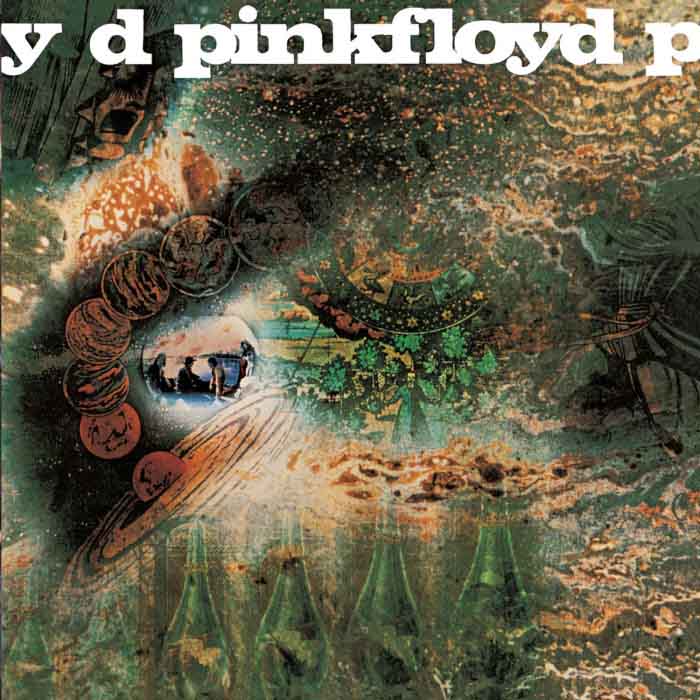
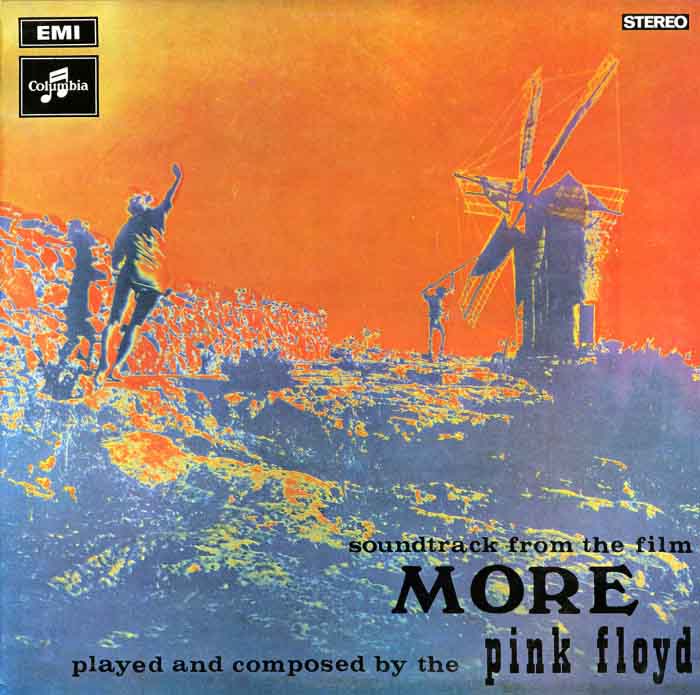
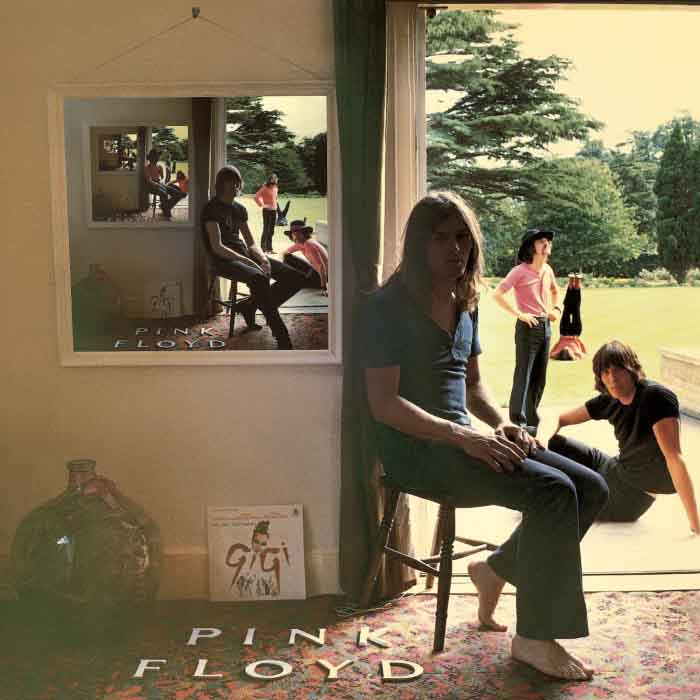



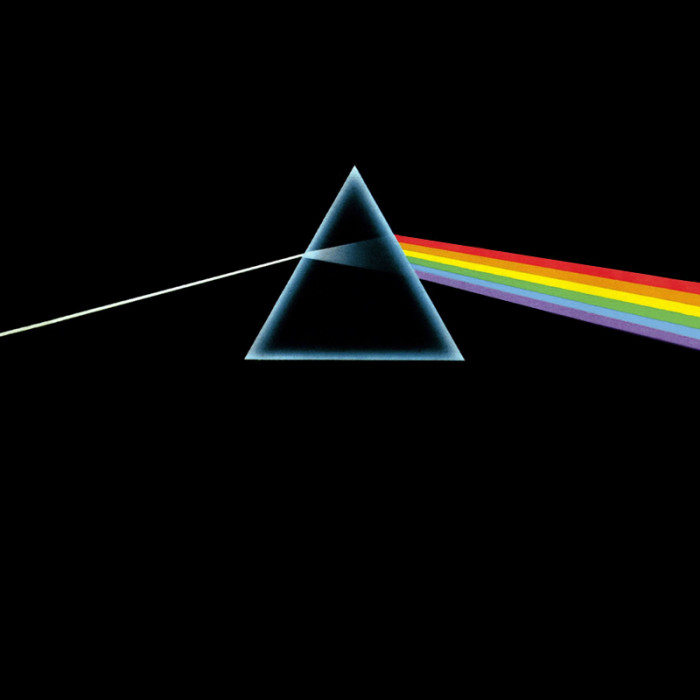


I think that all rock is more or less simple vapid trash, structurally and romantically, with the very notable exception of progressive rock.
I should get off my ass and start listening to some prog rock. But now what I already suspected is confirmed: that I should stay away from Pink Floyd and listen to other rock bands instead.
If I am doing the equivalent of condemning metal due to the popular metalcore crap, then let me know, and tell me which non prog rock bands are good!
Check out Pawn Hearts by Van Det Graaf Generator.
Sorry, it’s Van Der Graaf. Typo.
Ok. Thank you for the recommendation.
How’s Pawn Hearts compare to Godbluff? I’ve listened to the latter, but my knowledge of VDGG is otherwise very shallow.
My taste preferences gravitates towards Pawn Hearts era VDGG plus the two albums preceding it. Although Godbluff isnt too shabby either, it is a bit more streamlined, less epic, more personal drama and maybe most importantly, tones down the more dissonant, abrasive side of earlier Van Der Graaf. On the other hand, Godbluff is more to the point, and in some ways maybe darker and more depressing, but that depends on what you’re looking for, I guess.
Van der Graaf Generator – Still life is also good.
“I think that all rock is more or less simple vapid trash, structurally and romantically, with the very notable exception of progressive rock.
I should get off my ass and start listening to some prog rock. But now what I already suspected is confirmed: that I should stay away from Pink Floyd and listen to other rock bands instead.”
So, in your opinion, progressive rock is not “simple vapid trash”, but you have yet to start listening to it? And since you just read an article thrashing Pink Floyd, you have decided to stay away from their music?
Interesting …
LOL
I’ve heard some of it, and it showed promise. But I have yet to explore it properly.
If I hadn’t heard any of it at all then I would obviously not have an opinion on it.
I have changed my mind on rock being “simple and vapid”. While most rock is indeed bad, and it is easier to find good metal than it is to find good rock, rock itself, as a genre, is not bad. Because I can imagine what good music which would qualify as rock could sound like.
I believe that rock has the potential to be good. We have seen glimpses of this in certain works, for example in Eye Of The Tiger.
Eye Of The Tiger could be a lot better, because it doesn’t progress well. It just kind of repeats its already revealed parts. But the potential is apparent.
What I am saying is that it is theoretically possible to write music which is more developed than rock tends to be, without turning it in to metal or prog rock. Although “progressive” by definition means that it has outgrown its past. But that’s a linguistic-philosophical issue. With “prog rock” I mean the genre as we currently know it, not potential paths to progress that rock could take.
I get all the early 70s albums mixed up but I remember liking Echoes and Darkside way more than that goddamn early shit which is so fucking overpraised now. I just don’t fucking hear it, it sounds like stupid ass 60s bullshit, put a bunch of random sounds together “so… far out… man”. Oddly though I like later 70s sellout Floyd way more! And mostly based on the strength of the scenes showing kids trashing their school, psychological abuse, grotesque horror imagery and violent strangely pro-fascist animation of their brilliant movie The Wall. The album on its own is just merely a soundtrack and nothing special, but it comes to life in the movie which is some vague message about the road to rock stardom being and emptying soul erasure that leads to suicide and the loony bin. I also like that goofy ass song WELCOME TO THE MAACCCHIIIIINNNNE, it sounds like a 70s coke binge. Now let the defenders and whiners unleash their defenses, really who needs Pink Floyd?
There are a few reasons to be suspicious of this review, for the discerning reader out there.
Firstly, the ‘reviews’ are just general ‘zeitgeist’ impressions of an album: snapshots, if you like, based on a gestalt emotional reaction to the music. They consist of a paragraph at most (apart from Dark Side), and fail to engage with individual tracks. Moreover, they include such linchpin sentences as “Noteworthy are weird passages that sometimes build up to cumulative sequences but these are sparse and lead nowhere”. Such statements would make us nod our heads in Ernest academic agreement if we didn’t realize that there is no way to retrieve any concrete meaning from them (assuming some existed to be retrieved). On which tracks are such ‘cumulative sequences’? All of them? Only some? Which ones?
Secondly, the reviewer missed some very basic facts: such as Ummagumma having a whole second disc. The second disc consists of re-interpretations of earlier tracks played live at some university gig, though expanded, with use of ambiance that directly influenced Krautrock. I.e. This is Pink Floyd’s ‘space rock’ period – in between psychedelic and prog rock. It also fails to note their concert Live in Pompeii which is again re-interpreted versions of earlier tracks – extended and embellished in their influential space rock style.
Thirdly, despite the target of the article being Pink Floyd’s ‘Classic’ period, the albums chosen were all, bar Dark Side, taken from their very earliest period, which mostly consisted of them trying to find their feet after Syd Barrett, their first front man, had a mental breakdown and left the band after Piper at the gates of dawn.
Their classic period is universally recognized (by people that know a bit more about progressive rock and the 70’s movement) to consist of the following albums:
1) Dark side of the Moon (73)
2) Wish you were here (the album not the track) (75)
3) Animals (77)
4) The Wall (79)
Haha red herrings all of them!
It might be the classic era for the fans, it is the post climax era for me, thus, the era of decline. Kind of like post Close to the edge Yes. Except Yes were a great band, while Pink Floyd never really got their shit together and were only able to write stitched-up sequences.
Lastly, one quarter of the reviewed albums are movie soundtracks.
I know that Red has already been reviewed but I would like to see a collective review of all the King Crimson material before Red and also possibly the album Discipline.
What about bands like
TL2
Gentle Giant
Atomic Rooster
Lucifers Friend
Magma
Goodthunder
And a quality band like Arghoslent has yet receive a proper review. Not a member… not even a fan of their politics.
But hey thanks for letting me know Pink Floyd is boring.
The first and only worthwhile Arghoslent album was review in January:
https://www.deathmetal.org/review/arghoslent-galloping-through-the-battle-ruins-1998/
I stand corrected.
No their other albums are just as good, in fact that is their least album.
“Whipping the Cargo,” didn’t win you over politically? When you vote for Hilary make sure your erection is hidden behind your black friend’s stolen backpack.
TRUMP 2016!!!!!!!!!!!!!!
Arghoslent is garbage, none of their material is good. I invite you to link something that can demonstrate otherwise. There are many metal bands/albums with no musical merit whatsoever, that does not mean that when an act has nonzero musical merit it becomes good. As an aside, metal seems to be uniquely afflicted by this lack of musicality in its later years. Modern pop by comparison is quite musical.
Any metal fan who has never listened to Pink Floyd (is there such a person?) would be doing themselves a great disservice if they rejected the band based on this rather weird overview. To be honest I don’t really know why it was written for this site at all. What is the relation between this and black metal or death metal? The comparisons to GHOST are just weird. What the heck is going on.
David Rosales obviously got himself drunk and went through his vast collection of old Pink Floyd records and rare Ghost releases. When he sobered up he got embarrassed, as well as bare assed, and excreted the above fæcalic rant about it.
If you want to hear some really god-awful stuff, check out Barret’s solo stuff. I can’t believe anyone listens to it and actually is positively affected by it.
The quality of Pink Floyd can be summed up by the fact that most copycat bands are almost indistinguishable, or even superior in execution to the original. As much praise as early prog rock acts gets, a large number of it is nothing more than bells and whistles (stadium) rock. This could be attributed to many bands since The Beatles for throwing anything and everything into their music and seeing what sticks in the end.
There were indeed tons of absolutely terrible progrock bands, who got even worse as the 80s dawned. But I almost feel a burst of inspiration of wanting to write something up on the merits of the GOOD bands of the 70s prog style. Would DMU be interested? :)
Sure. Direct all contributions to editor@deathmetal.org
Pink Floyd shouldn’t be the target (especially their early albums and soundtracks – which are most of the albums analysed here for some reason).
Pink Floyd strove for beauty, atmosphere, layering, and transcendence in their music. Some say they achieved this in their best period starting with Dark side of the Moon.
Rather than bitch about (early!) Pink Floyd, why don’t you attack what really needs to be attacked in this world: which is a focus on the mundane and ordinary. You Fuggwit.
Every non-metal essay/think-piece from DMU reminds me of Syme & Gregory debating the merits of order v. chaos in the opening of The Man Who Was Thursday.
That said, Pink Floyd has bored me for quite some-time now, despite the relevance their music will always have…for good or for ill. Might be a case of “old = good,” which metal fans certainly succumb too more often than not. Floyd still has use as a “stepping stone” band, of sorts, for people only accustomed to mainstream music.
On another note, pre 80s Gentle Giant and damn near all of Magma is terrifyingly dense, complex music that evokes fantasy and sci-fi realms in the brain. Don’t wait for this sites approval, find out yourself.
In fact, I strongly recommend Gentle Giant, King Crimson and Genesis towards the end of this entry.
Gabe…..Gabe…..is that you ??
This article is pure hipster.
wow, i’ve never seen so many pink fraud fanboys concentrated on a comments section,someone nuke it before they escape
first 2 paragraphs accurately describe this band but if you want some laid-back pop to listen to during a long journey in the car, try dsotm,wywh and animals
They are frauleins in pink tutus. Motorhead and Queen made better driving music.
Mahavishnu’s Orchestra obliterates them …
Haha another ‘righter than thou’ flavoured article that’s basically completely patterned off of prozakian styled thought. The usual triggers are present; every attempt at providing an objective basis for why a set of incompatible vantage points are exist in perfect hierarchy, one better than the other. Mind applied to world (+ +). Then cometh the strawman problem; of course solving it by making it formally known to the world what the correct interpretation of something is when in reality people are just going to like what they like regardless.
But then, we look into why they like things, and this reveals the emptiness of subjectivity. It also makes people change what they like. Learning happens.